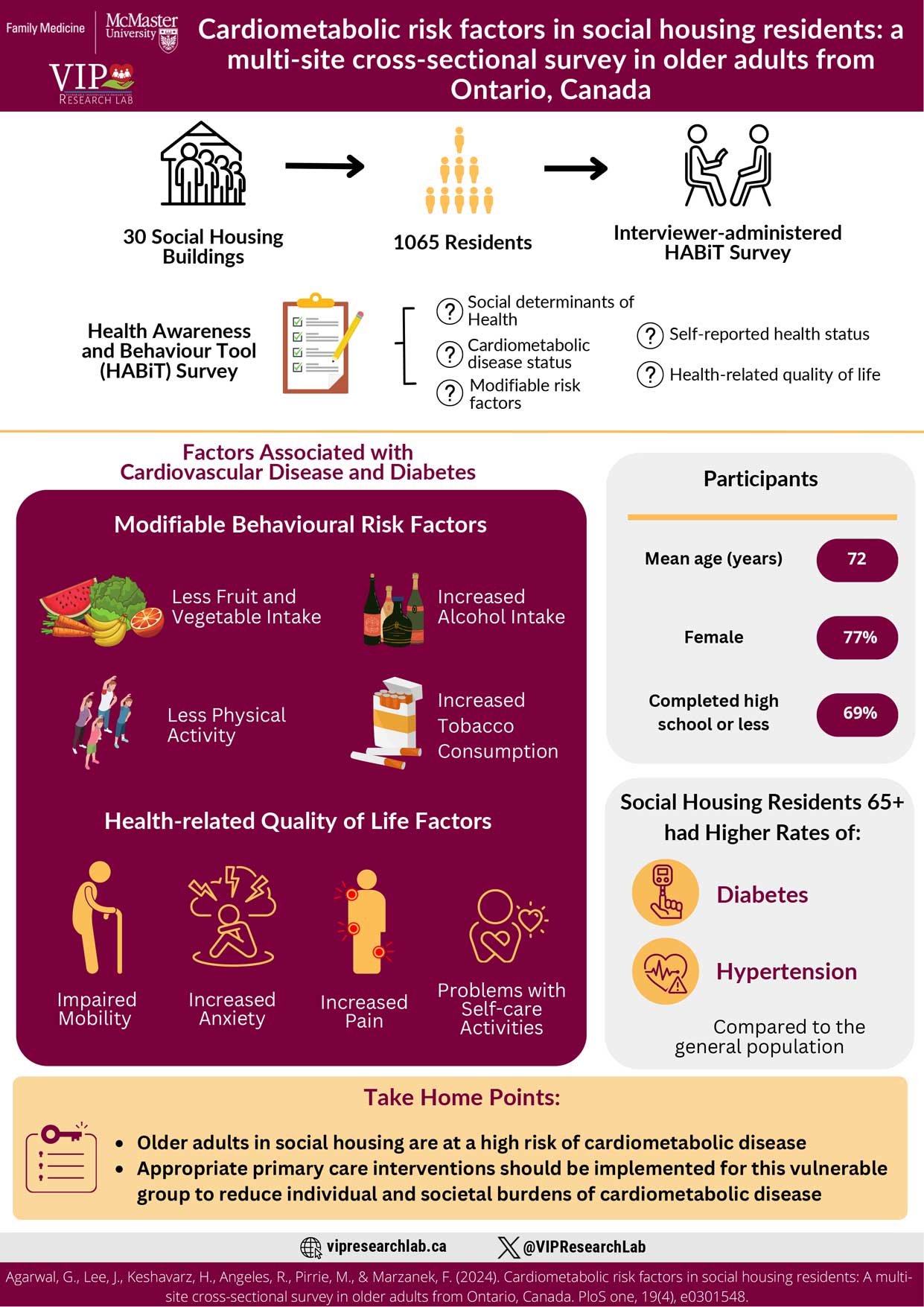
The infographic titled “Cardiometabolic risk factors in social housing residents: a multi-site cross-sectional survey in older adults from Ontario, Canada” provides an overview of a study conducted by McMaster University’s VIP Research Lab. The study involved 1065 residents from 30 social housing buildings and utilized the interviewer-administered Health Awareness and Behavioural Tool (HABIT) Survey. This survey assessed social determinants of health, cardiometabolic disease status, modifiable risk factors, self-reported health status, and health-related quality of life. The participants had an average age of 72 years, with 77 percent being female, and 69 percent had an education status of completed high school or less.
The middle section of the infographic highlights factors associated with cardiovascular disease and diabetes. It is divided into two main categories: modifiable behavioural risk factors and health-related quality of life factors. The modifiable behavioural risk factors identified in the study include having less fruit and vegetable intake, less physical activity, increased alcohol intake, and increased tobacco consumption, and higher consumption of processed foods. The health-related quality of life factors noted were impaired mobility, increased anxiety, increased pain, and problems with self-care activities. Additionally, it presents a comparison indicating that social housing residents aged 65 and older have higher rates of diabetes and hypertension compared to the general population.
The bottom section of the infographic summarizes the key take-home points. It emphasizes that older adults in social housing are at a high risk of cardiometabolic diseases. The infographic concludes by suggesting that appropriate primary care interventions should be implemented for this vulnerable group to reduce individual and societal burdens of cardiometabolic disease.
References to the study are listed at the bottom, acknowledging the authors involved in the research.
